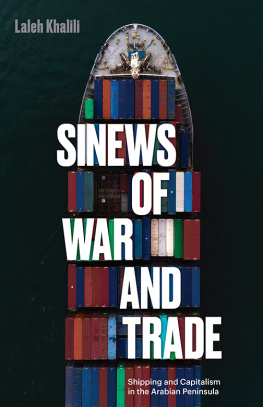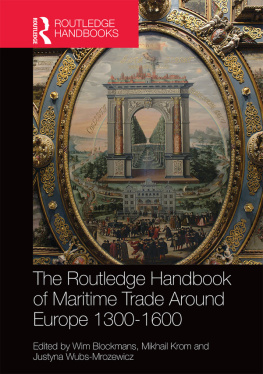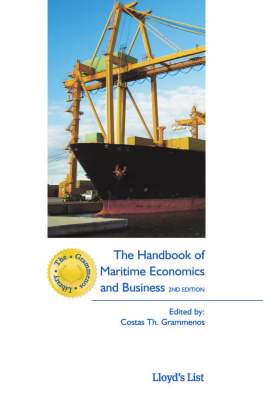Egypt, together with many other developing countries, has set out on a path towards large-scale privatisation of its industry and commerce as a means to achieving greater economic prosperity. Most of the economy is affected by this development, not least the road freight transport sector. The objectives of this book are to investigate and analyse the structure of the road freight industry in Egypt, and to identify how the privatisation and deregulation of that industry are being approached. It includes a review of the road freight industrys performance, its problems during the transitional period leading to privatisation, and the current and likely future impact of economic reform on the industry. Since there is no single ideal route to privatisation, it also considers different privatisation options. For example, the existing large state sector road freight companies could continue as large-scale private entities, or their assets could be sold to the many small freight operators of the thriving co-operative sector. The book also looks at the impact of foreigners purchasing Egyptian road freight companies, a feasible development in a world of ever-increasing global alliances in international shipping and intermodal transport and a topic of much debate in Egypt.
All such developments are considered in the light of past Egyptian experience, and the lessons to be learnt from the privatisation of road freight in other countries are taken into account. Two countries in particular are considered - the UK and Hungary. There are good reasons for selecting these countries. The UK was one of the first countries in the world to deregulate its road haulage industry, and was also one of the leading countries in the privatisation processes that started in the late 1970s and continue to this day. It has experienced many forms of privatisation, and it also has a well- documented history of road freight privatisation. Hungary has been selected because it has some similarities with Egypt, in that it is also going through the process of privatisation and deregulation, and has a well-established road freight industry. The evidence of this book is supported by the findings of a Delphi study of Egyptian experts, undertaken by the authors, drawn from government, academia and the road freight and associated industries. The results of this study enable the book to include a specific Egyptian viewpoint.
There are three main groups of reader who are likely to have an interest in this book. First, it should have a general appeal to all those interested in the topic of privatisation, particularly its progress in developing countries. There are many paths to privatisation, not all of them successful. This book examines both successes and failures and seeks to adopt a critical approach. The very idea of privatisation has been called into question by some commentators, particularly in the context of transport, which often has prominent environmental and social factors to be taken into account. For this reason this book devotes a chapter to the external environmental or social costs associated with road haulage and its privatisation.
The book can also be seen as part of the increasing body of published work on business logistics and supply chain management. There has been a rapid growth of interest in logistics in recent years as manufacturers, retailers and other members of the supply chain appreciate the benefits of an integrated approach to production, the management of inventory, customer service and transport, particularly when associated with international distribution. The globalisation of international business and its supply chains has led to a worldwide demand for higher quality freight transport services by all transport modes. Most of the literature on logistics is associated with developed countries, particularly in North America and Western Europe, and there is a shortage of published work on logistics in or for developing countries, which are, nevertheless, part of the same global supply system. A chain is as strong as its weakest link, and a supply chain will similarly be no more efficient than its weakest logistics link. Poor transport systems in developing countries reduce the effectiveness of international supply chains and, consequently, the attractiveness of such countries for general industrial investment by overseas corporations.
The area of interest for the third group of readers is linked to the preceding theme. Those with an interest in developments in international shipping are aware of the growth of intermodal transport systems, particularly for containers moving by ocean liner services. Shipping companies can no longer only be interested in the sea journey of the goods and containers they are carrying, if they are to compete effectively. Exporters and importers increasingly require door-to-door services from factory to warehouse and want to undertake one-stop shopping, dealing with a single transport operator or logistics provider. It is seldom easy for ocean liner companies to integrate with the land system in developing countries, which often lack adequate road or rail infrastructures or suitable inland transport organisations. Since the road freight carried by the state sector in Egypt is strongly associated with traffic moving through seaports, the book is also a contribution to the international transport literature, specifically the interface between sea and land transport.









